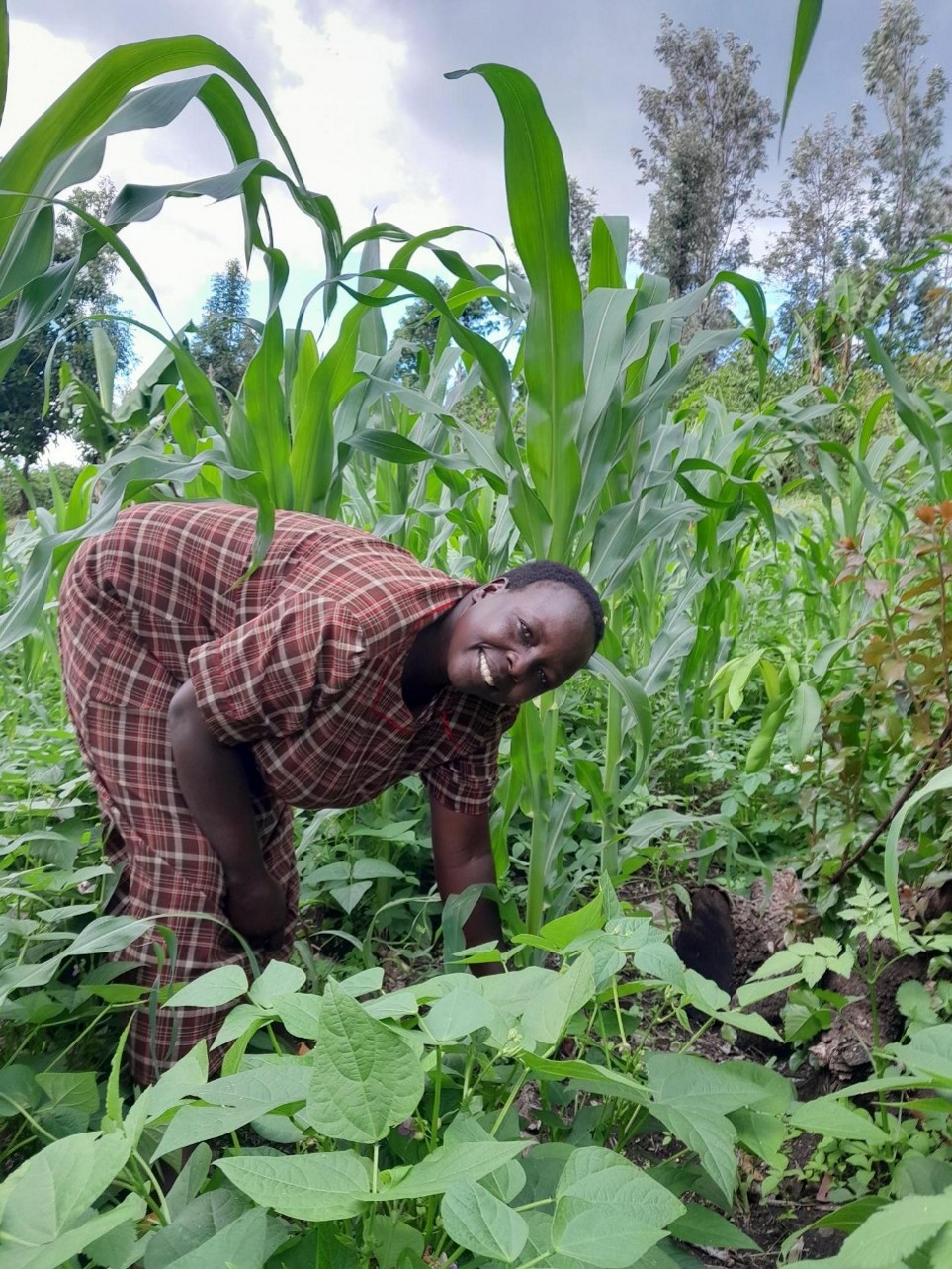Ambitious farmers (7)
28-09-2023We believe that working with professional farmer cooperatives is an investment in a stable, prosperous agri-sector, in the economy and in wider society. Ambitious organised farmers across the world want to develop, become entrepreneurs and business partners, add value and move up the supply chain. This has a positive impact on economic growth, poverty alleviation, inclusiveness, food and nutrition security, and climate resilience and mitigation.
We interviewed 9 ambitious farmers from Tanzania (5), Kenya (2) and Ethiopia (2) to find out if their situations have changed since becoming members of a cooperative. Each week, you can read an interview.
Farmer 7: Ann Tuei from Kenya
Ann Tuei is a 50 year old female farmer who lives in Chamchamo, Kericho County in Kenya. She lives together with her 3 daughters and 1 son. She also has two grandchildren. In 2021 she lost her husband, who at the time managed a medium-sized coffee farm. This meant a big challenge for the household, as now Ann was the main income provider for the family. Education fees were a main challenge for Ann during that year however, she managed to take over the farm of her husband, managed the coffee being produced there and generated enough revenue for school fees and even maintenance of the coffee farms.
Ann has always been a farmer. Before cultivating coffee, she was producing maize, which she still produces. Maize was very often used for food in her household and only the remnants were sold in the local market at local prices. This crop did not bring as much revenue when compared to coffee.
The first time Ann planted coffee was in 2013. She then started with only 100 trees and became member of Kimologit Coffee Cooperative. The cooperative supplied part of the seedlings, for her to start her own coffee farm.
The first harvest was in 2016. She managed to produce 1000 KG’s of cherries. In 2017 she had supplied enough berries to the cooperative to become eligible for a seat in the board, which she later got. Until then only men had been part of the board. Ann became the board representative of women farmers in the cooperative. She has maintained her seat up till now, and was re-elected last year.Owning and managing a coffee farm allowed Ann to pay school fees for all her children and even allowed her to expand her coffee production over the years.
In 2022 Ann was qualified to run a demo farm. She took on the challenge and has been working on it for more than 1 year now. Currently, the farm hosts trainings on Bio-Solution implementation and climate-smart agriculture. The demo farm is completely organic and introduces new farming techniques to local farmers such as intercropping and displays the right dimensions for coffee planting.
Ann now has 3 plots of land, 3.5 acres in total, of which around 2.5 are planted with coffee. Her coffee tree distribution is: 850 (Plot 1) + 500 (Plot 2) + 1115 (Demo Farm).
Ann joined the cooperative because she saw it as an opportunity to generate revenue for herself and her family through the sales of her newly sown coffee as well as to join a community of coffee farmers. One of the aspects she enjoys most about being part of the cooperative is the opportunities she has in terms of trainings, and learning.
Ann states “Thanks to the network I created by being part of the cooperative, I have gained so much knowledge on coffee farming and organic farming, that I now feel confident I can teach this to other members.”
In hindsight, Ann states that because she took charge of coffee and got the right trainings, she is now able to have a sustainable source of income through the production of coffee, to provide for her family and pay many of her expenses (personal and farm inputs). A lot of benefits can be derived from farming and gaining knowledge on sustainable agricultural practices. When she joined the cooperative, she realized the real value of coffee and decided to increase the production thereof.
Big changes

Women in coffee
It is very difficult for women to become an active member of a cooperative that is largely dominated and managed by men. Ann noticed this and decided to teach women they can farm coffee as well. She first started in the local coffee union women’s group in 2018. In 2022 she became the leader of Kimologit Women in coffee. She says: “Women tend to be more caring, not only within the household, but also at the farm, we know what the crop needs, and we know this because we are at the farm all the time. We care for our coffee. I know from myself, and other women farmers that we have the power to improve coffee farming in the area. We see the value of coffee and we see, by using the right practices, we can create a sustainable source of revenue for our families.”
Kimologit women in coffee is a community based organisation, founded in 2022 by the gender office of Kenya. Women in Kimologit are more empowered and are now aiming to obtain jobs in higher positions such as factory managers. Within the cooperative, they’ve set up a women’s group, which has 52 members, of which 31 members own their own farm. All 31 supply coffee to Kimologit.
Ambitions
- To harvest 10k Kg of coffee berries from her farms in the upcoming 3 years.
- To share the positive impact of organic farming in terms of yield, especially to other women involved in coffee farming.
- Demonstrate that synthetic fertilisers at very high prices are not worth the investment.
- To expand and have more trees spread over all three plots of land that she uses (increase production capacity).
- To increase yields of coffee using bio-solutions, and produce her own bio-solutions for use on her farm.
Read also the stories of other farmers:
